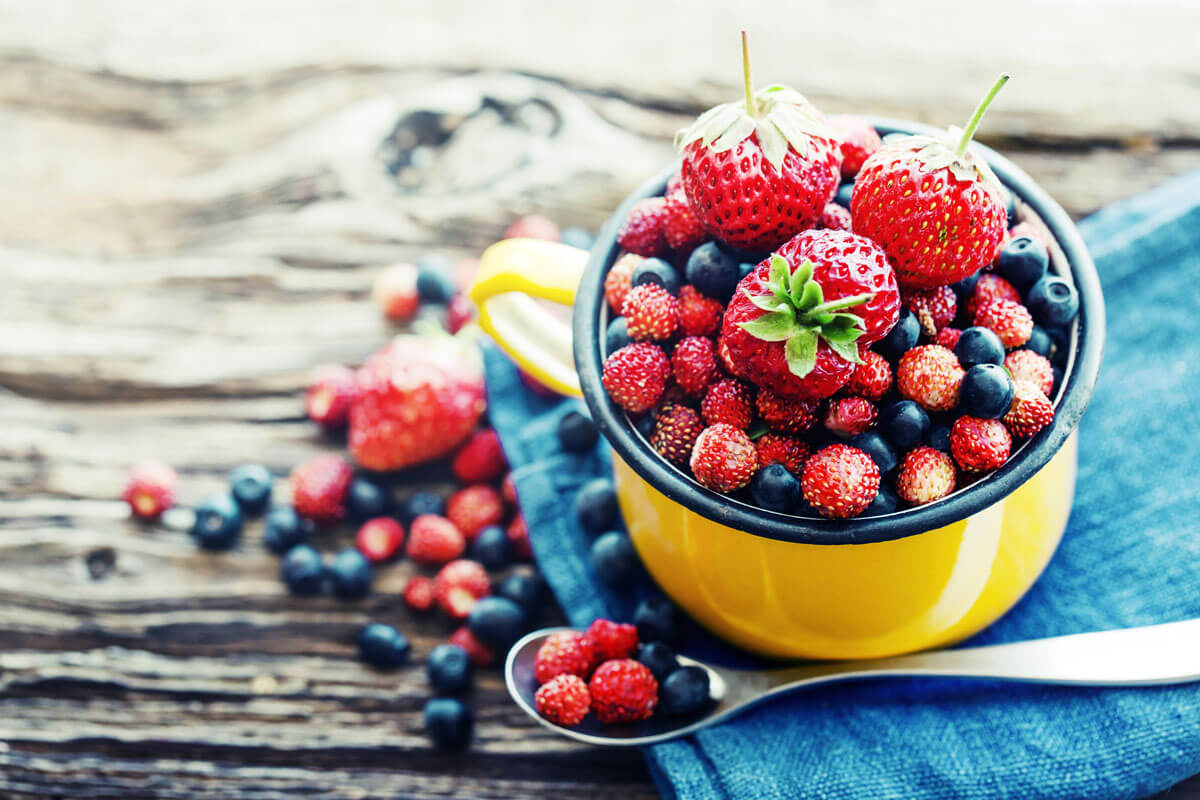What Are Whole Foods And How Do They Affect Your Health?
What are whole foods? What’s the difference between whole foods and processed foods? What is a whole foods diet and do I need to eat one in order to be healthy?
Clean eating has become the new mantra in the health and wellness world as diets like Whole30 and Paleo become ever popular. Even Zac Efron is jumping on the food bandwagon with his new Netflix show “Down to Earth,” which tries to offer viewers insight into sustainability and healthy food from around the globe.
While Whole30 and Paleo are not without their critics, health experts do generally agree on the benefits of eating more whole foods and staying away from processed foods as much as possible.
But what is processed food? And why should we avoid them? Grace Pascale, a Registered Dietitian based in San Diego (follow her on Instagram: @babybychickpeas), says eating foods as close to their natural state as possible is one of the best things we can do for our health and longevity.
What Are Whole Foods, Anyway?
What are whole foods? It depends who you ask, says Grace. There is even debate among dieticians and nutritionists about what constitutes a whole food. Some consider animal foods, such as meat and dairy, to be whole foods, while others do not. Grace says if you can stick in the ground and it grows, then it’s a whole food. Fruits and vegetables, legumes, nuts and seeds and other plant food in their natural form are what she considers whole foods.
“Colloquially, we think of processed foods as any food made in a factory. They’ve had all of their beneficial components stripped out and problematic components like sugar and salt put in,” explains Grace. But there are varying degrees of process.
She says, “Processed foods are really anything that's been processed in any way. Technically steamed broccoli is a processed food. Brown rice is processed. There are different degrees of processing. The most helpful definition for people is to think of it this way, if you stick the food in the ground, does it grow? Is it life-giving? Or have the beneficial components been stripped away?”
It’s the added components (salt, sugar, and fat) and the stripping of the beneficial ones (vitamins, minerals, and fiber) that contribute to modern-day diseases because they elicit an inflammatory response in the body. In fact, most of the diseases and conditions we suffer from, both physically and mentally, can be reduced by eating a whole foods, plant based diet because that kind of diet reduces inflammation.
“Most of the diseases we suffer from stem from inflammation,” explains Grace. “Whole foods have antioxidants, vitamins and minerals that reduce inflammation.” We can reduce symptoms of depression, anxiety, heart disease, diabetes and other crippling diseases by reducing inflammation in our bodies, she says.

How Whole Foods Contribute to Better Health
How do whole foods and minimally processed foods reduce inflammation and contribute to better health? It’s all about what they contain. Those antioxidants, vitamins and minerals help fight inflammation by reducing blood sugar spikes in the body, even when you eat processed foods with whole foods.
According to research conducted by Dr. Michael Gregor, a physician, New York Times bestselling author, and founder of NutritionFacts.org, whole foods such as berries and avocados curbed the spike in blood sugar when they were eaten along with processed foods like white bread and hamburgers compared to eating those processed foods alone.
Your body responds to intense spikes in blood sugar by pumping out insulin, making the pancreas work overtime. This response increases inflammation and contributes to heart disease, diabetes, cancer, and other health problems.
“Eating a whole foods, plant-based diet is the healthiest diet in terms of disease prevention. It’s the gold standard for longevity and mental wellness,” says Grace. But it's also not necessarily easy to eat such a diet, especially in our fast-paced world where fast food seems to power our most busy days.
Grace’s tip for beginners looking to cut out some processed foods from their diet is: make it at home. If you’re going to have a treat, make it at home. Instead of grabbing a cookie out of the bag, make a batch at home. Even salty snacks like chips can be made at home. It’s more of an effort, of course, but that’s the point.
These snacks are important for quality of life—because who doesn’t want a cookie every once in a while? But by making them at home, not only will they contain less ingredients than their super-processed grocery store version, it won’t be as easy to grab one for breakfast every morning.
Starting your very own vegetable garden at home is a great way to incorporate whole foods into your diet. Plus you get all the benefits of gardening like exercise, stress relief, and the satisfaction of having grown your own food. Learn more about gardening for beginners here.

Add These Top 5 Whole Foods to Your Diet
If you want to start adding more whole foods into your diet, Grace shared her Top 5 Whole Foods for reducing inflammation:
- Oats - oats help lower cholesterol and fight heart disease, which is the #1 killer in the US. But not all oats are made equally. Grace suggests rolled oats since they are readily available and don’t take forever to cook.
- Beans and legumes - beans and legumes contain high levels of antioxidants, fiber and are a low-calorie source of protein.
- Berries - berries are a great source of antioxidants, and they decrease inflammation and blood sugar spikes even after eating refined carbohydrates like white bread. Black elderberries are a potent form of antioxidants and can help support your immune system all year round.
- Dark Leafy Greens - dark leafy greens like kale, spinach, collard greens, and cabbage are rich in antioxidants, minerals, and vitamins such as K, A, and C. They have cancer fighting properties and reduce inflammation.
- Mushrooms - mushrooms come in many varieties and are known for their cancer fighting abilities. They are versatile in the kitchen and are great meat substitutes because of their umami flavor.
If you want more tips for adding whole foods to your diet, NutritionFacts.org offers a Daily Dozen checklist of the whole foods you should be eating every day. There’s even an app you can download.
It might seem overwhelming at first, especially if you’re just getting started on this journey. But adding whole foods in slowly and making small changes to your everyday lifestyle can help you on your way to good health.
Do you want even more information or specific help with your diet? You can talk with Grace Pascale, Registered Dietitian, today for assistance in reducing inflammation and comorbidities.
About Grace Pascale
Grace Pascale is a Registered Dietitian Nutritionist with a life's mission to help others find healing and vitality by reforming their relationships to food and their bodies. She does this by encouraging "divorces from diet culture," teasing out the  confusing and often contradictory information surrounding nutrition, and educating her patients on the importance of eating whole foods in abundance. Grace's areas of expertise include plant-based nutrition, eating disorder recovery, chronic disease prevention and anti-inflammatory diets. She has a Masters of Science in Whole Foods Nutrition, a Bachelor's degree in Psychology and experience working with a variety of patients in both inpatient and outpatient settings, including long term care, private practice, and a level 3 trauma center. She is passionate about the health and happiness of her clients and offers a balanced approach to wellness, providing evidence-based research in a digestible manner, and carefully assessing readiness for change. Grace is active on social media, providing nutrition tips and disease-fighting recipes on her Instagram account @BabyByChickpeas, YouTube channel and on her website GracePascaleNutrition.com.
confusing and often contradictory information surrounding nutrition, and educating her patients on the importance of eating whole foods in abundance. Grace's areas of expertise include plant-based nutrition, eating disorder recovery, chronic disease prevention and anti-inflammatory diets. She has a Masters of Science in Whole Foods Nutrition, a Bachelor's degree in Psychology and experience working with a variety of patients in both inpatient and outpatient settings, including long term care, private practice, and a level 3 trauma center. She is passionate about the health and happiness of her clients and offers a balanced approach to wellness, providing evidence-based research in a digestible manner, and carefully assessing readiness for change. Grace is active on social media, providing nutrition tips and disease-fighting recipes on her Instagram account @BabyByChickpeas, YouTube channel and on her website GracePascaleNutrition.com.
